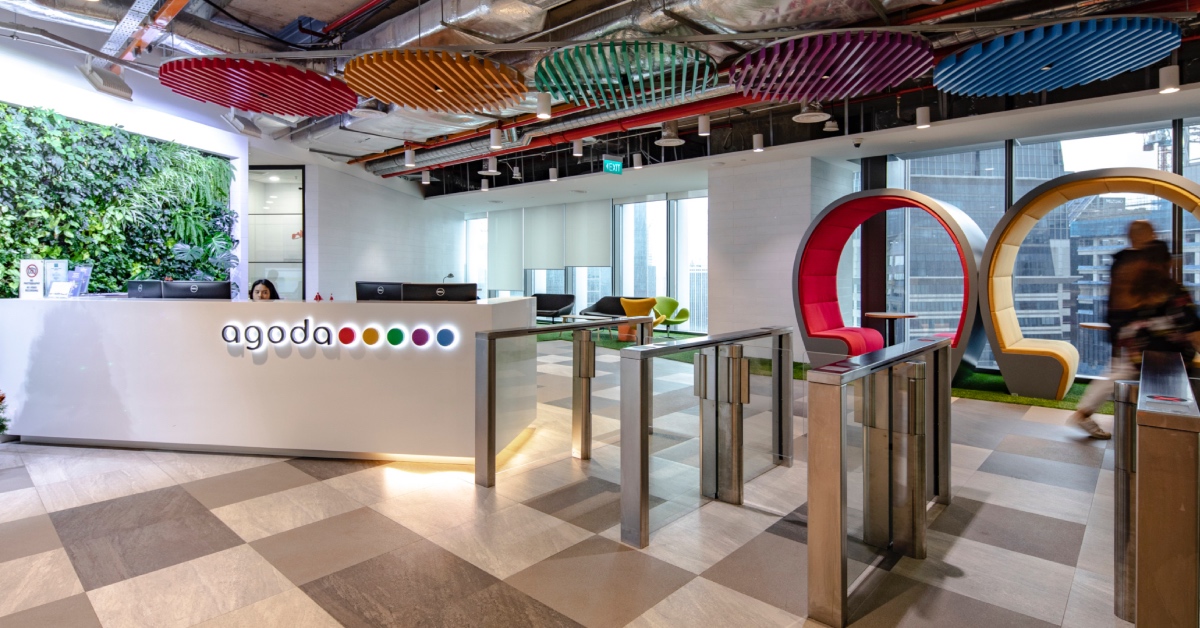15 executives leading sustainability efforts in marketing and advertising
Here’s a look at some of the brand and agency leaders who are prioritizing environmentally-friendly initiatives.

Here’s a look at the brand and agency leaders who are prioritizing environmentally-friendly initiatives
Amid a global crisis around climate change, consumers are demanding more from brands in the way of eco-friendly practices. This includes how brands are weaving sustainability into their marketing efforts.
From minimizing carbon emissions on production sets to prioritizing investing in NFTs that are less harmful to the environment and buying eco-conscious media, there’s an onus on marketing and advertising leaders to balance environmental implications with financial gains.
While many agencies are brands are hiring chief sustainability officers to build these eco-friendly strategies, developing sustainability practices are also falling to other leaders.
Here’s a look at some of the brand, agency and marketing executives leading sustainability efforts.

Felipe Ambra, global VP, Anheuser-Bjusch InBev
Credit: AB In-Bev
Asa Borg, chief marketing officer, Polestar
While the entire auto industry seems to be embracing the future of electric vehicles, Polestar is looking beyond the environmental implications of the cars themselves and has embraced transparency in the carbon footprint of its manufacturing process. The Swedish company aims to make its first climate-neutral car by 2030, which takes into account the entire supply chain and production process. Led by Borg, Polestar aired its first Super Bowl commercial this year that stood out among the big-budget Big Game efforts of other automakers, promising Polestar won’t compromise or greenwash.
Ryan Gellert, CEO, Patagonia
Gellert has continued the environmental activism legacy of Patagonia’s founder Yvon Chouinard since being promoted to brand president in 2012 and to the top job 16 months ago. While the company already sells sustainable products such as fleeces made from recycled bottles, and encourages people to trade in used clothes, Gellert has focused on the company’s supply chain, funding energy and carbon audits for suppliers to help make them more efficient, selling recycled products, and making the transition to renewable sources.

Pamela Gill-Alabaster, head of sustainability, Mattel
As part of its commitment to environmental sustainable sourcing principles, Mattel has been moving away from plastics and non-recyclable materials in its packaging and products. As part of these efforts, the toymaker hired Pamela Gill-Alabaster two years ago. She had worked on sustainability efforts at Revlon and Estee Lauder. Now, she’s tasked with developing products that are better for the planet, as well as helping Mattel customers develop more sustainable behaviors around reusing toys. Last year, Mattel brand Barbie introduced its first fashion doll collection made out of recycled ocean-bound plastic.

Alan Jope, CEO of Unilever
Jope came into his job in 2018 with questions about whether he’d be as vocal an advocate for sustainability as his predecessor Paul Polman. He quickly dispelled those doubts, doubling down on the company’s commitments with a 15-point plan in 2020, including a $1 billion investment in a climate and nature fund. Shortly after taking the role he said: “Brands without a purpose will have no long-term future with Unilever.” Jope is under pressure from shareholders to deliver, receiving criticism that the company has prioritized sustainability over financial performance.

Stuart Landesberg, CEO and co-founder of Grove Collaborative
Landesberg is the driving force behind the fast-growing direct retailer of its own and other environmentally-friendly household products, which are also sold in many Target stores. He’s taken a carrot-and-stick approach to industry peers, bringing approved products such as SC Johnson’s Mrs. Meyer’s and Method into the Grove marketplace, but criticizing industry efforts to encourage plastic recycling as a smokescreen. Only 9% of plastics that go into recycling bins actually get recycled, he contends, because of infrastructure limitations.


Gustavo Lauria and Marco Vega, Co-Founders, We Believers
Out of their small independent agency, Lauria and Vega have helped major brands execute ambitious eco-friendly initiatives. These include the “Cow’s Menu” campaign for Burger King that enlisted scientists to change bovine diets in order to reduce methane emissions, as well as the “Plastic Fishing Tournament” for Corona that paid fishermen to clean up plastic litter from the oceans. The idea, which began in Mexico, just went global, and Corona has rolled out the initiative to China, Israel and Brazil. The pair are also the inventors of the “Edible Six-Pack Rings,” the award-winning biodegradable can holder for Saltwater Brewery that they’ve spun off into a separate business E6PR.

Katie Mackay Sinclair, partner at Mother London
Mackay Sinclair has been leading the way on sustainability initiatives at the London agency. Mother is aiming toward B Corp certification and is currently undergoing a carbon audit and action plan to reduce its impact. It has also focused on sustainable travel, including encouraging staff to travel by train rather than fly where possible, and bike to work. The agency’s incubator unit Broody focuses on developing household products that are more sustainable, such as plant-based gum Nuud and eco detergent brand Smol.

Laura Maness, CEO, Havas New York
Havas New York became B Corp certified in November 2021, a designation that a business meets a certain standard when it comes to its social and environmental practices, and Maness is looking to guide rivals on how to go through the process. Maness named former journalist Lindsey Stein to the new role of chief of social impact last year in an effort to further weave social impact into the agency. Havas New York has worked with clients like Keurig Dr Pepper to communicate and navigate sourcing sustainable materials.

Roma McCaig, senior VP of impact & communications at Clif Bar & Company
Before joining energy bar maker Clif in 2021, McCaig was VP of corporate responsibility and sustainability at Campbell Soup Company. At Clif, her hybrid role, created for her by CEO Sally Grimes, is to bridge the gap between overseeing sustainability strategy and articulating that strategy as the brand’s leader of corporate, brand and employee communications. Clif, which turns 30 this year and already uses 100% green power at its owned-and-operated facilities, has a particularly ambitious sustainability goal: It plans to become a climate net-positive company (i.e, carbon negative) by 2030.
Aga Orlick, senior VP-North American laundry care, Procter & Gamble Co.
Orlick has made getting people to wash in cold water a key part of Tide’s marketing plan. It’s all part of a 10-year strategy to reduce energy consumption in the laundry supply chain. That may seem like putting the responsibility on consumers, but P&G and other industry analyses (including by Unilever), have long found the biggest contributor to carbon footprints in the laundry or personal cleansing supply chains actually come from people using hot water with the products.

Alison Pepper, executive VP, government relations, 4A’s
Pepper created a guide for the ad industry on greenwashing, and the first agency Sustainability Task Force focused on emerging issues around environmental sustainability for agencies. These issues include a roadmap for evaluating business travel and guidance for the growing need for “greenskills” in agencies.
Javier Quiñones, CEO and chief sustainability officer, IKEA U.S.
Ikea is one of a host of retailers trying to reframe its relationship with the environment, and Javier Quiñones is leading the brand’s U.S. action on the issue. The Swedish furniture giant is working to become more circular and climate positive with its materials, sourcing and production, and create a positive social impact for all stakeholders, according to its sustainability ambitions for 2030. In a recent interview, Quiñones noted Ikea’s use of solar and wind power, vehicle charging stations and offering of only rechargeable batteries, as examples of the brand’s efforts in the space.

Tom Szaky, CEO of TerraCycle
Szaky started recycling organic waste from the dining halls at Princeton into “worm poop” fertilizer sold in re-purposed plastic bottles in 2004. He turned that into a business, finding creative ways to reuse hard-to-recycle packaging like Capri Sun juice packets. In 2019, after rubbing shoulders with the consumer packaged goods elite at Davos, he helped form Loop, a consortium with major packaged-goods marketers and retailers to sell products in durable, reusable containers that are returned to stores.

Saskia van Gendt, head of sustainability, Rothy’s
Sustainability has been a part of Rothy’s brand since its inception, as the retailer started its business by making footwear out of recycled plastic. As head of sustainability since joining the company in 2020 from Method Products, Saskia van Gendt, an environmental scientist with a background in sustainable design, works to minimize Rothy’s impact on the environment with its sourcing and production practices.

 Kass
Kass 

































.jpg&h=630&w=1200&q=100&v=f776164e2b&c=1)